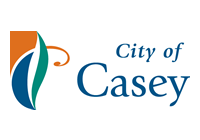Casey Foothills
Individual income quartiles
In Casey Foothills, the 'lowest' female income quartile was the largest group in 2021, comprising 29% of females aged 15 and over.
Casey Foothills's income statistics are an indicator of socio-economic status. With other data sources, such as Household Income, Qualifications and Occupation, they help tell the story of the area's economic opportunities and socio-economic status. Individual income levels are not comparable over time because of the influences of economic change such as wage level fluctuations and inflation. The income quartile method is the most objective method of comparing change in the income profile of a community over time.
A detailed explanation of how Individual Income quartiles are calculated and interpreted is available in specific data notes.
Derived from the Census question:
'What is the total of all wages/salaries, government benefits, pensions, allowances and other income the person usually receives?'
Gross amount for persons aged 15 years and over
| Individual income quartiles | ||||||||
|---|---|---|---|---|---|---|---|---|
| Casey Foothills - Females aged 15+ (Usual residence) | 2021 | 2006 | Change | |||||
| Quartile group | Number | % | Clyde North (Thompsons to Hardys) % | Number | % | Clyde North (Thompsons to Hardys) % | 2006 to 2021 | |
| Lowest group | 993 | 28.5 | 27.2 | 686 | 27.4 | 25.1 | +307 | 30001 |
| Medium lowest | 720 | 20.7 | 17.5 | 453 | 18.1 | 22.4 | +266 | 30002 |
| Medium highest | 840 | 24.1 | 33.0 | 615 | 24.6 | 24.9 | +225 | 30003 |
| Highest group | 929 | 26.7 | 22.4 | 750 | 29.9 | 27.6 | +179 | 30004 |
| Total persons aged 15+ | 3,483 | 100.0 | 100.0 | 2,505 | 100.0 | 100.0 | +978 | |
Source: Australian Bureau of Statistics, Census of Population and Housing (opens a new window) 2006 and 2021. Compiled and presented by .id (opens a new window)(informed decisions).
(Usual residence data)
| Individual income - Quartile group dollar ranges | |||||
|---|---|---|---|---|---|
| Calculated from income data for [theQBMQuartile] - Total persons aged 15+ | Weekly income by Census year | ||||
| Individual quartile ranges | 2021 | 2016 | 2011 | 2006 | 2001 |
| Lowest group | $0 to $335 | $0 to $250 | $0 to $228 | $0 to $177 | $0 to $184 |
| Medium lowest | $336 to $662 | $251 to $516 | $229 to $438 | $178 to $355 | $185 to $323 |
| Medium highest | $663 to $1,241 | $517 to $979 | $439 to $841 | $356 to $676 | $324 to $572 |
| Highest group | $1,242 and over | $980 and over | $842 and over | $677 and over | $573 and over |

Compiled and presented in profile.id by .id (informed decisions).

Compiled and presented in profile.id by .id (informed decisions).
Dominant groups
Income quartiles allow us to compare relative income-earning capabilities across time. Analysis of the distribution of the population by income quartile in Casey Foothills compared to Clyde North (Thompsons to Hardys) shows that there was greater proportion of persons in the highest income quartile as well as a greater proportion in the lowest income quartile.
Emerging groups
The most significant change in Casey Foothills in females between 2006 and 2021 was in the lowest quartile which showed an increase of 307 females.
